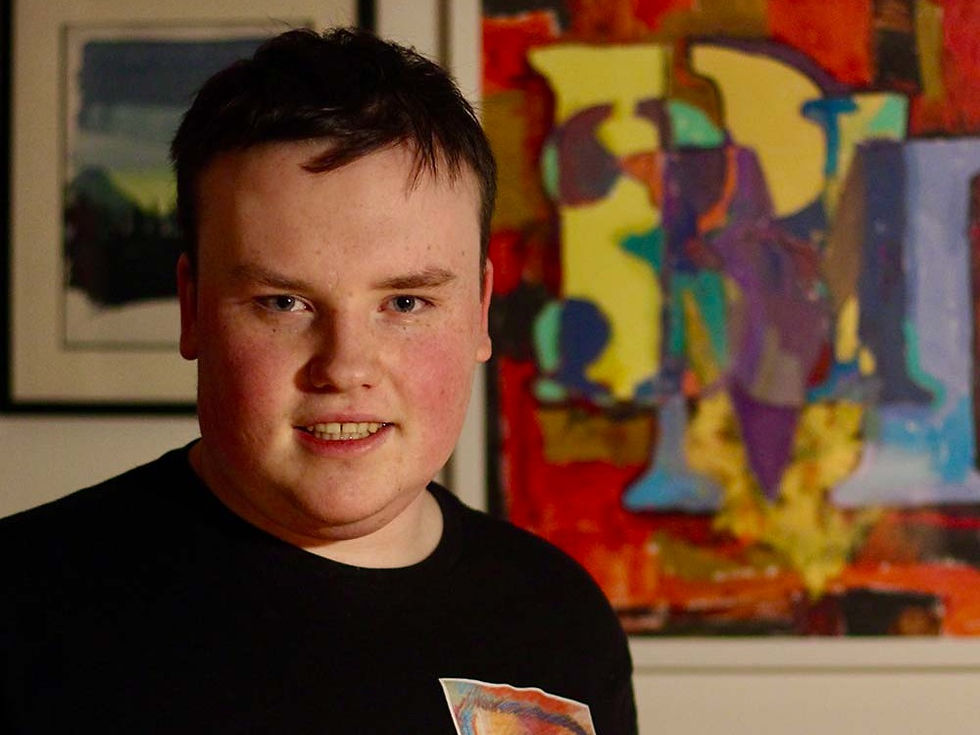In service of good work
- David Hasbury

- Jan 30, 2021
- 3 min read

These morning moments are times of waiting, listening, and seeing what comes to me. Sometimes there are brief insights, and sometimes the door to bigger thoughts is opened. This is a bigger thought day, and as such it only opens the door, always leaving me with more questions than answers.
This morning Wendell Berry, indigenous traditions, and our friend Ross came to my mind's eye.
Wendell Berry is a writer who dips into a deep well of thought, poetry, and experience rooted in farming and the lessons and questions that stewardship of the land can offer. A few years ago, I watched the documentary, "Look & See: Wendell Berry's Kentucky" . At one point in the film Berry (who rarely speaks on camera) references that it is no surprise that "unemployment" is seen as a problem, since we have spent more than 150 years trying to replace humans with machines. In his collection of essays, "What Are People For?", he writes,
“In a country that puts an absolute premium on labor-saving measures, short workdays, and retirement, why should there be any surprise at permanence of unemployment and welfare dependency? Those are only different names for our national ambitions.”
The pool of people who will become "permanently unemployable" is designed to expand. We live in a framework that views labor, as expense, to be reduced. We don't make the connection of people with labor. We accept that there are people who are not easily used for their labor, and we have been prepared to discard them before we begin. Narrow views of capacity, and "usefulness" in people who are older, or seen as "disabled", leave people separated out.
I think of these anger filled times. So often a misdirected anger, that brews in people's response to, or in anticipation of, being used, left behind, and then discarded. There is fertile soil in the pandemic for growing anger, as people perceive the experience as being told to care for each other by staying physically distant, as a command that leaves livelihoods as discardable.
Economists have called for an infusion of relief payments that will support people (workers and business owners) to be safe and physically distant, AND compensated to do so on behalf of the economic whole and healing. Oppositional forces have raged in anger that their individual freedoms are being removed by some governmental force, and we value nothing more than individual freedom always, much more than the health of the whole.
Berry's question for his essay collection is profound, "what are people for?".
Over the years I have come to respect traditional teachings among indigenous people, that envisions a cycle of life, and members of the community embodying different roles at different stages of life, and a purpose they can grow into and embody that will serve the community, the tribe, the nation. Mothers and fathers bring the gifts of infants into the world, but there is the importance of the grandmothers and grandfathers (roles defined more by the stage of life and relationship to children, than by blood relation) in recognizing and affirming the gifts of children and youth, and the wisdom of elders to connect children to the people who can teach and guide children to embody their purpose that serves the whole.
Who will be the healers who bring our eyes back to the whole?
Who will connect the full cycle of life?
Who will engage us in "good work"?
Who can see the role that our friend Ross (in the picture above) can fill in service to the whole? Who will connect him to the teachers and guides he will require to embody that purpose?
The quest of "rugged individualism" has brought us to the precipice of environmental, economic, and democratic collapse. How will we continue as a whole people? How will this pandemic serve to heal, and make us more whole?
Or will we allow it to just push us over the edge?
How will we labor in service of good work?
"Good work finds the way between pride and despair. It graces with health. It heals with grace. It preserves the given so that it remains a gift. By it, we lose loneliness: we clasp the hands of those who go before us, and the hands of those who come after us; we enter the little circle of each other’s arms, and the larger circle of lovers whose hands are joined in a dance and the larger circle of all creatures, passing in and out of life, who move also in a dance, to a music so subtle and vast that no ear hears it except in fragments." Wendell Berry "What Are People For?"







Love this thought-provoking and oh-so-relevant piece. I wonder how our thinking might change if we asked those critical “Who will/can” as “How can we...”